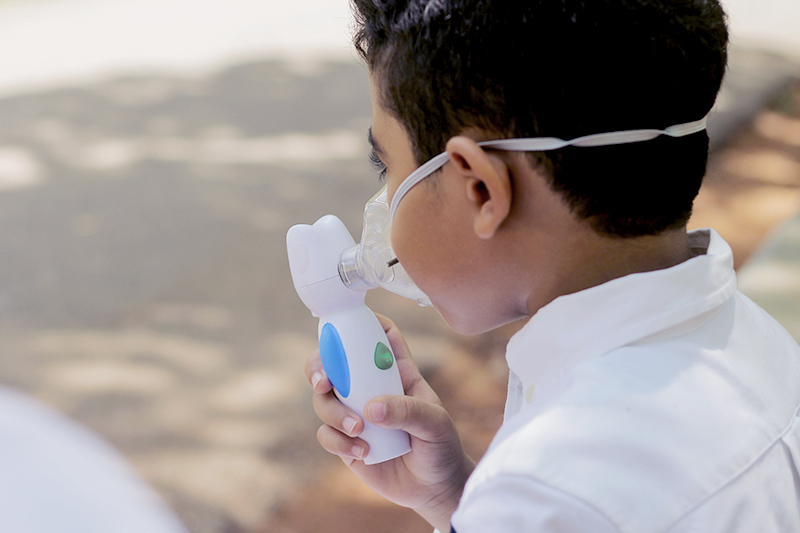
Asthma affects about 1 in 10 children, often sending them to the emergency room or causing them to miss school. Allergic conditions in young children — like food allergies or eczema — are often a precursor. Susceptible children begin producing IgE antibodies, which trigger allergic reactions and spur the “allergic march” toward asthma. IgE antibodies also impair immune responses to respiratory viruses, making wheezing even worse.
Could blocking IgE halt this chain of events? In 2016, Wanda Phipatanakul, MD, and her colleagues at Boston Children’s Hospital began a first-of-its-kind clinical trial to test this idea. The randomized, double-blind study, called Preventing Asthma in High Risk Kids (PARK), enrolled 200 wheezy 2- and 3-year-olds at risk for asthma. The children then received monthly injections of IgE-blocking medication omalizumab (Xolair) or placebo for two years.
Now, with a five-year grant from the NIH, the team is following up with these children, now ages 6 and 7, to see if Xolair treatment prevented asthma.
Teasing out the response to asthma treatment
In addition to clinical assessments, Phipatanakul and her colleagues in the Allergy and Asthma Program at Boston Children’s will use advanced molecular analyses to track anti-viral and immunologic responses.
“We want to understand how and why children respond to early interruption of the immune processes in the asthma march,” Phipatanakul says. “The new study includes lots of integrated systems biology.”
Measures will include studies of DNA methylation and RNA sequencing to look for changes in genetic and protein profiles in different cell types in the children’s airways. The researchers hypothesize that children who respond to anti-IgE may have increased expression of genes related to the immune response to viruses, the structure of epithelial cells in the airways, and the integrity of the barrier between the airways and the outside world.
“This has never been done,” says Phipatanakul.
Molecular differences between children who do and don’t respond to Xolair could provide biomarkers useful in guiding anti-IgE treatment, she adds.
“We expect to get insights on who will respond or not respond,” she says. “And regardless of outcomes, this study will help us understand why some people go on to develop asthma and some don’t.”
Source:
